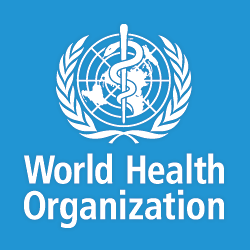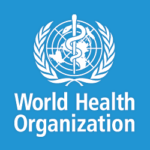 The Arthritis and Musculoskeletal Alliance, an alliance of prominent health charities, professional and research bodies, today [Thursday 15th September 2016] welcomed a ground-breaking World Health Organisation action plan to tackle a tidal wave of musculoskeletal conditions in Europe [1]. The Action Plan for the Prevention and Control of Noncommunicable Diseases in the WHO European Region, which was approved by WHO Europe’s Regional Committee today, includes specific priority actions by all European countries to stem the rise in musculoskeletal conditions and to improve overall health.
The Arthritis and Musculoskeletal Alliance, an alliance of prominent health charities, professional and research bodies, today [Thursday 15th September 2016] welcomed a ground-breaking World Health Organisation action plan to tackle a tidal wave of musculoskeletal conditions in Europe [1]. The Action Plan for the Prevention and Control of Noncommunicable Diseases in the WHO European Region, which was approved by WHO Europe’s Regional Committee today, includes specific priority actions by all European countries to stem the rise in musculoskeletal conditions and to improve overall health.
Musculoskeletal conditions affect the bones, muscles and joints, and are the single biggest cause of disability and pain across the UK. Together, they account for one in five visits to the GP[2], over £5 billion NHS spending every year and 30.6 million working days lost each year.
The Action Plan calls on all countries to build musculoskeletal health systems that allow timely access to person-centred care of musculoskeletal conditions, with a focus on early intervention and enabling people to self-manage effectively. The Action Plan also calls on countries in Europe to increase physical activity for all ages to reduce obesity and avoid injuries; introduce musculoskeletal health programmes for older people; promote bone, joint and muscle health through school and throughout people’s lives; and integrating musculoskeletal health with health promotion and occupational health in the workplace.
The Action Plan was also welcomed internationally by the Global Alliance for Musculoskeletal Health, which is working to make musculoskeletal health a priority. They call on all countries of the European Region to implement the Action Plan and all countries of the world to adopt a similar approach to tackling musculoskeletal conditions.
Professor Anthony Woolf, chair of the Arthritis and Musculoskeletal Alliance said:
“This is a landmark report because for years health policy across the world has ignored diseases which affect the lives of so many people and focussed on those with high mortality such as cancer, heart disease and diabetes. Now with people living longer it is time for priority to be placed on dealing with this enormous burden from neck and back pain, rheumatic, arthritis and musculoskeletal conditions to prevent unnecessary pain and disability and keep people independent. Despite effective ways of preventing and treating them, many people do not have access to them because they are not a priority. This Action Plan helps to redress the balance.”
Federico Moscogiuri, chief executive of ARMA, said:
“This WHO Action Plan offers the latest and strongest signal yet that effectively addressing the growing burden of MSK disorders is where some of the biggest wins lie for healthcare, social care and public health alike. ARMA calls on the UK government to take concrete steps to ensure that the steps outlined in the Action Plan are implemented in practice, and to support the Global Alliance for Musculoskeletal Health’s Call for Action.” [3]
[1] There are over 200 musculoskeletal conditions affecting the joints, muscles and bones, which include low back and neck pain, rarer autoimmune diseases, osteoarthritis and fractures. Musculoskeletal conditions are the biggest cause of disability and pain across the UK.
[2] Ref: Arthritis Research UK National Primary Care Centre, Keele University (2009), Musculoskeletal Matters.
[3] http://bjdonline.org/call-for-action/
ENDS
For more information contact: Nita Parmar on 0203 856 1979 on Mon, Tues, Thurs / ARMA Office at other times on 0203 856 1978.
NOTES TO EDITORS:
ARMA, the Arthritis and Musculoskeletal Alliance, is the alliance representing the arthritis and musculoskeletal community in the UK. Our members include major national patient-led charities, professional bodies and research organisations active in this area, as well as patient-led charities focusing on rare and complex musculoskeletal disorders. For a full list of member organisations, visit https://arma.uk.net/membership/.

